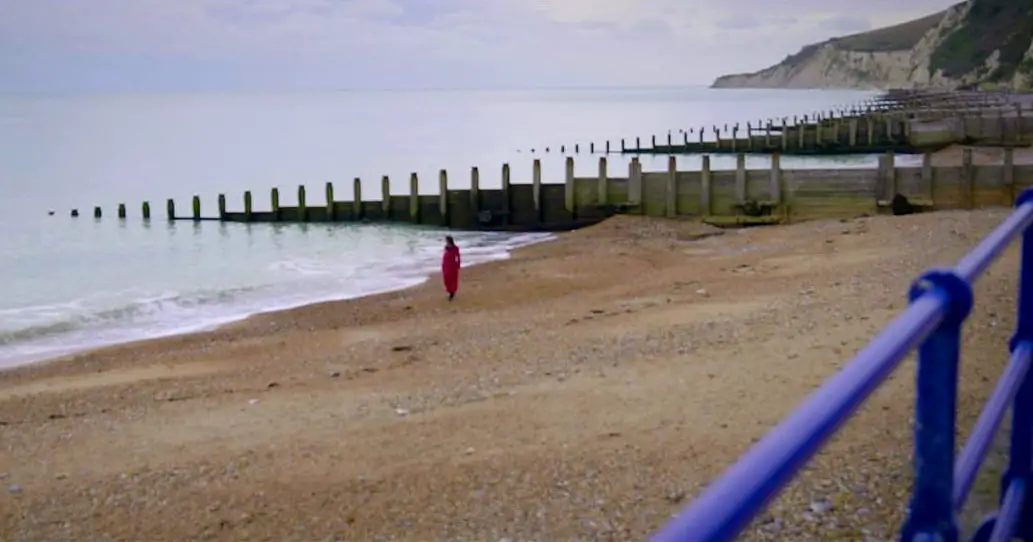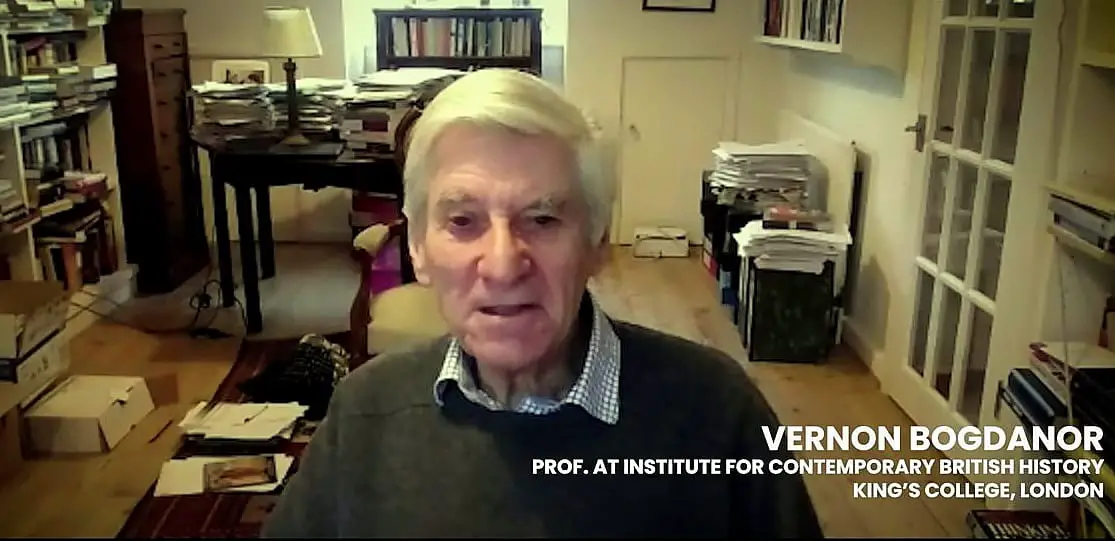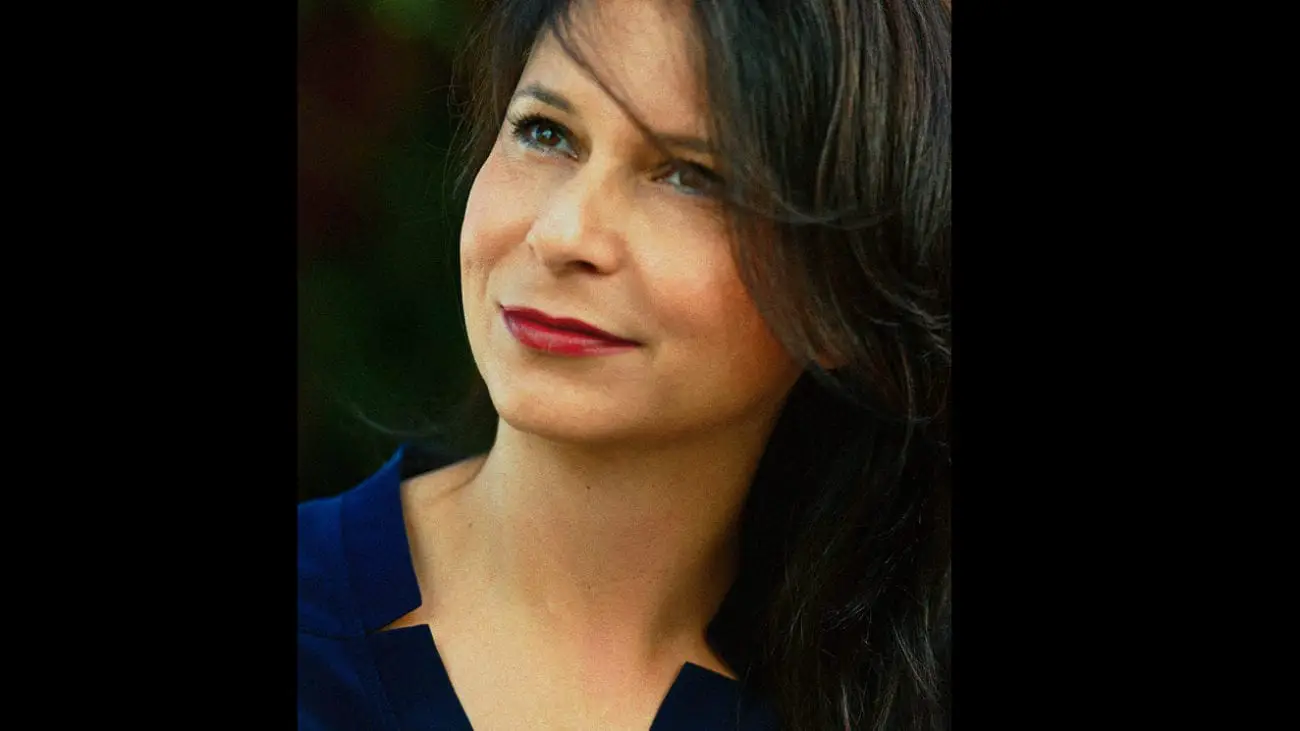Nina Kojima, a respected journalist of Slovenia TV, has covered many important stories over the course of her 24-year career including the state visit of former US President Bill Clinton and the Eurovision Song Contest. When she moved to Britain she became a foreign correspondent, commentating daily on Brexit for Slovenian TV and radio channels. Kojima, an Eastern European immigrant who now considers herself British did not have a right to vote in United Kingdom’s Brexit referendum five years ago. Now she explores the truth about Brexit in her debut documentary Brexit Through the Non-Political Glass. Featuring experts who weren’t given the chance to be heard during the vote, shying away from the politicians, propagandists and populist agenda which filled the day-to-day press coverage, the film examines the ramifications of that historic vote.
Kojima speaks to us about what the vote has meant for the people of Britain, her background in journalism, her all-time favorite movie and getting this documentary made during a nation-wide lockdown.
Jason: Can we begin by discussing your background, particularly how you got into Journalism?
Nina: How I got to journalism was very unplanned. I was in university studying philosophy which my mom was against so she kicked me out. I had to earn money to pay my rent. I was walking down the street, very miserable, and a radio station was next to me. A very established journalist came out and I told him I’d like to work at his radio station and asked if he could introduce me to the editor. That was in 1996. The editor saw me that day and gave me a job because one of the junior journalists quit, actually that morning. I got fast tracked there so by the time I was almost 22 I was a host of this morning show with an audience of two million people. I completed my studies and became the editor of a weekly show called Student Street which was broadcast on Slovenian television. That show was my idea. I was a producer and editor-in-chief. So that’s how I started.
Jason: I was watching some of your student show. I liked it. So let’s talk about your film. How do you take a large subject such as Brexit and examine it where it’ll resonate with the average person?
Nina: When I moved to London I was a correspondent from No. 10 Downing Street. I reported on other issues like terror attacks. Brexit is one thing I’m supposed to talk about because I was there. I was there at the Scottish referendum in Edinburgh. It was hard for Scottish people back then because they knew David Cameron would have a referendum sooner than later and they were right. When Cameron triggered that referendum many people said it was unfair. What happened then was very interesting: Boris Johnson joined the campaign to leave. Most of the people knew he was a Brussels correspondent, a correspondent from the European Union, he was a journalist in the past where he lied. His newspaper had to pay a lot of money for false information. I know his father, Stanley Johnson, and he’s an amazing person. He’s an environmentalist, a human rights supporter and he is against Brexit and the whole Johnson family is against Brexit. That was a very Interesting moment.

Jason: Documentaries can often appear stodgy or dull. Like something that your teacher would show you in social studies class. How do you capture an audience’s attention and keep them compelled In documentary film making today when everything in our society is so fast with so much to consume in one short period?
Nina: For everybody the lockdowns was a genuine experience. We started watching documentaries because we wanted to find something more. We started with the Donald Trump ones on Netflix and you go, Oh, my God, the story behind this man, it’s mad. Even more than the consequences, which we are all experiencing all over the globe. Documentaries feature people who explain things supported by documents, pictures, statements, and places. I have two teenage daughters and they would prefer to choose a documentary over a drama or comedy. They want to know something. I love the documentaries from Michael Moore and I loved watching them again. There are a few actual films I like to watch again and again—one of them is Some Like It Hot. I love it. I would watch it three times per year, but documentaries are the ones you can always come back to and learn new things.
Jason: I’ve been watching a lot of rock history documentaries on this over the past year about bands like INXS. So how did you choose and decide on the eight interview subjects featured in your film and why academics and professors instead of ordinary people in say, the pubs and bars?
Nina: Brexit was a political and nasty debate placed within two camps where each was twisting their own ideas and lies. They did not listen to real experts. English fishermen who supported Brexit now can’t sell shellfish anymore to Europe. Now they’re saying, ‘I wish I knew that before, I wouldn’t have voted to leave.’ Experts didn’t have the opportunity to be on the stage before and weren’t listened to. I was one of the few journalists in Westminster who always knocked on their door asking for comments. I always included them into my political current affairs stories for Television Slovenian, but most of the journalists didn’t. And the result was the result. Our side of the story is from the eyes of academics, scholars and experts.
Jason: Was there anyone you approached who declined in wanting to participate?
Nina: I hope you’re going to believe me but no. Everybody replied in less than a half an hour after I sent them an email. That was in November during our second UK lockdown. That was the time we were still considering or not to do this project during COVID. Once I got confirmation from them in half an hour, that gave me the strength and I said they’re up for it, we’re going to do it.
Jason: So this entire movie was put together rather rapidly?
Nina: We shaped the idea in October and started filming in December. We had to stop on the 18th because Boris Johnson locked us down again as we were to go to Cambridge. But Cambridge was one of the most important shoots for this film so we had to wait until the end of January. It was very hard.
Jason: Did you encourage your participants to express more the facts or their personalities or a combination of both?
Nina: It’s interesting because I knew them from before. I kind of knew how they would think because I was on those press conferences. They were always talking about specific approaches on every step of Brexit. I have a constitutional expert and a economic expert, both from Cambridge, and an expert on migration from London’s University. One of them is a columnist in the Guardian newspaper. I could say they’re my colleague in a way. I shocked them with some questions and you can it see in their eyes. And then there are moments they are laughing. I want my audience to be everybody who would like to know what happened. Brexit is a British brand together with the Royal Family and the Beatles. That’s how we start.
Jason: And living in Canada, we live under the British monarchy ourselves. Of the experts you interviewed is there a common thread or common opinion shared among them why the leave vote was favored?
Nina: They all have their own opinions based on their on their field of research. One speaker, Vernon Bogdanor is a former tutor to former Prime Minister David Cameron. Cameron contacted Vernon and asked when he thought referendum should happen. Vernon advised him it should be later so people can get prepared. But Cameron didn’t listen to him. And interesting enough, the public opinion about Brexit is the same as it was in 2016. So British people are still very divided on that question.

Jason: Why do you think the experts such as Bogdanor weren’t listened to at the time and what not communicated to the public regarding the vote?
Nina: First, the campaign to leave had money, they could go around with the buses and they were vocal. Academics don’t do this. They sit in universities and don’t go on buses shouting at people to remain. Journalists are to blame as well, because journalists were reporting the spooky stories. And then social media, of course. Look what happened with Cambridge Analytica. We all know they manipulated to a certain extent. The Academics were there. They were waiting. I came. I asked them; I interviewed them. I was a committee member for a Press Association for many years. My colleagues from France, Germany, Belgium, they weren’t picking up those comments at all. They were picking up stories. They were picking up lies. And those people who were lying they had an excellent platform in the news channels, newspapers and poor media.
Jason: What do you think is Britain’s reputation in the world since Brexit?
Nina: It depends who you ask. We see how it’s going with the AstraZeneca vaccine made by a company which is half British and half Swedish. Angela Merkel came out a couple of weeks ago and said that vaccine is not good. She said that she will not take AstraZeneca. As a result, Italy has only 3% of the population vaccinated because they refuse to have it. Britain wants to have more power and be more collaborative with Commonwealth countries and dominions including Canada.
Jason: You’ve been covering Brexit for a long time, and knowledgeable on the subject. Do you think you’d ever go into a project you weren’t so knowledgeable about just in order to learn as you go?
Nina: The documentaries I do are very specific. For example, I’m in pre-production on a documentary about human colonies on Mars. This is my PhD, I’m a PhD student as well, at the University of Glasgow. So again, another documentary based on my knowledge. And I’m aware in that context, that I am a director, writer and a producer, but also a person who knows about the topic. I love the artist Prince and Netflix is doing a documentary on his life but I know nothing about his private life. I wouldn’t do that because there isn’t a deep enough story for me. He was an artist and his art is amazing but it’s not for me to touch. I wouldn’t do a documentary on any musician to be honest, because it’s not the substance I would go for. They already express everything in their songs and art, and sometimes it’s better not to go there.
Jason: Would you encourage aspiring journalists to try to make a documentary at some point?
Nina: Absolutely. The good documentaries are always made by journalists, not by writers. It’s an enormous difference. A writer can write a pleasant story and use the right words, but a journalist is the one who’s doing proper research. A good documentary is a team effort but because of COVID I couldn’t have a large team on this documentary.
Jason: Has journalism in your view changed in the last 20 years and if so, how?
Nina: Like many things, journalism follows global trends because we are a global society. We need more educational approaches and stories. A journalist should be an honest person and the first person to deliver the right angle of the story. It’s not the journalist who’s going to decide what is right or wrong. Journalists have the biggest duty than ever in history right now. There are so many things, there are so many challenges in, and the talented journalists can help a lot.

Jason: In Canada, we have the CBC. I don’t know if you’re familiar with the CBC?
Nina: I do. And I know producers there. We talk, we meet each other, and I have a lot of respect for the CBC. I think they’re wonderful media.
Jason: Can you tell us what the release strategy for this documentary?
Nina: I wish I could tell you but I can’t. I hope you will be able to watch to watch it soon on a streaming channel.
Jason: I think you touched on this but what are you currently working on next?
Nina: We’re locking this picture right now and then we are moving straight away to a new project. It’s a TV series based on Three Little Hearts, the short film on Amazon. If readers like it, please vote for it. Amazon launched it after the brutal killing of George Floyd last year. It contains a very strong anti-racist message. I developed it into eight episodes. Then we have another factual documentary which I was talking to you earlier about. About human life in Extra Terrestrial place.
Jason: We look forward to seeing those and best of look with the Brexit documentary.
Nina: Thank you so much.
Brexit Through The Non-Political Glass from Partisan Media will be released in early spring 2021.


